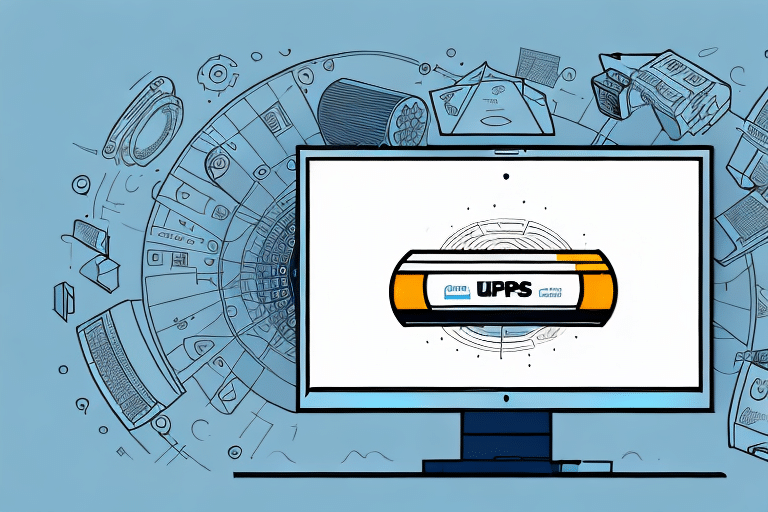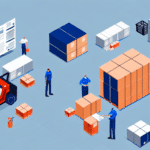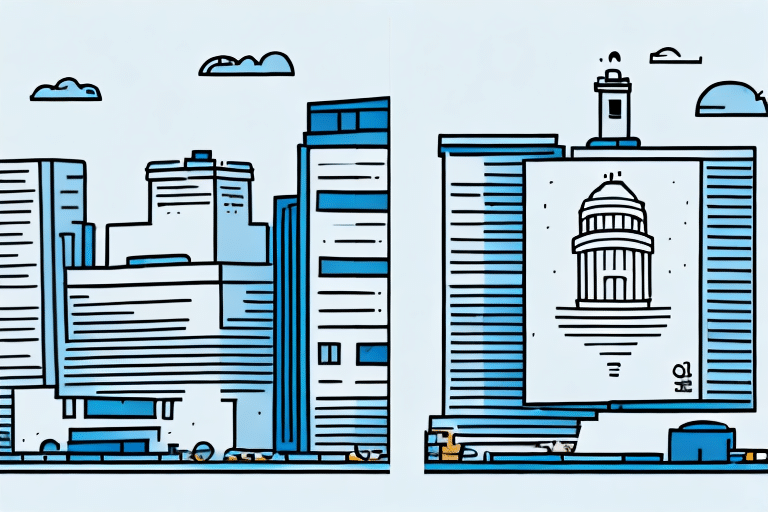An In-Depth Guide to 3PL Logistics Fulfillment: Features, Benefits, and Future Trends
Outsourcing logistics has become increasingly popular in recent years, with many businesses opting for third-party logistics (3PL) providers to manage their supply chain operations. In this comprehensive guide, we will explore 3PL logistics fulfillment in detail, covering its definition, history, benefits, types of services offered, how to choose the right provider, in-house vs. outsourced logistics management, the impact of technology, common challenges faced, best practices for successful implementation, real-world case studies, and future trends.
Understanding 3PL Logistics Fulfillment
What is 3PL Logistics Fulfillment?
3PL logistics fulfillment refers to the outsourcing of logistics and supply chain management activities to third-party providers. This includes transportation, warehousing, inventory management, order fulfillment, and other related activities. 3PL providers offer businesses a range of services designed to streamline their supply chain operations, reduce costs, and improve overall efficiency.
One of the key benefits of using a 3PL provider is the ability to scale operations quickly and efficiently. As a business grows, managing logistics and supply chain activities in-house may become challenging. By outsourcing these activities to a 3PL provider, businesses can expand their operations without significant investments in additional resources or infrastructure. Moreover, 3PL providers often have established relationships with carriers and suppliers, enabling businesses to access better rates and services.
Statistics Highlighting the 3PL Market Growth
The global 3PL industry is valued at over $1 trillion as of 2023 and is expected to continue expanding at a compound annual growth rate (CAGR) of approximately 8.5% from 2023 to 2028, driven by the rise in e-commerce and globalization [1].
The Evolution and History of 3PL Logistics Fulfillment
The concept of outsourcing logistics is not new. The first recognized 3PL provider, United Parcel Service (UPS), was established in the early 1900s. Since then, the industry has grown rapidly, fueled by advancements in technology, globalization, and changing consumer behaviors. The integration of data analytics and automation technologies has enabled 3PL providers to optimize their operations, delivering more efficient and cost-effective services to clients.
One major factor driving the growth of the 3PL industry is the increasing demand for e-commerce. With more consumers turning to online shopping, retailers face pressure to provide fast and reliable delivery options. This surge has led to a rise in the number of 3PL providers specializing in e-commerce fulfillment, offering services such as warehousing, order processing, and last-mile delivery.
Benefits of Outsourcing Logistics to a 3PL Provider
Cost Savings
Partnering with a 3PL provider can significantly reduce operating costs by leveraging the provider’s established infrastructure and economies of scale. Businesses can save on warehousing, transportation, and labor costs, often achieving savings of up to 20% [2].
Expertise and Experience
3PL providers bring specialized knowledge in logistics and supply chain management, enhancing efficiency and productivity. Their expertise allows businesses to navigate complex supply chain challenges effectively.
Scalability
Businesses can easily scale their logistics operations up or down based on demand without substantial capital investment. This flexibility is crucial for handling seasonal fluctuations and market growth.
Focus on Core Competencies
Outsourcing logistics allows businesses to concentrate on their primary activities, such as product development and marketing, rather than getting bogged down by logistical challenges.
Access to Advanced Technology
3PL providers often utilize state-of-the-art technologies for inventory tracking, shipment monitoring, and data analysis, providing businesses with actionable insights and improved supply chain visibility.
Types of Services Offered by 3PL Providers
3PL providers offer a comprehensive range of services tailored to meet diverse business needs:
- Transportation Management: Handling the movement of goods via various modes of transport, including air, sea, and land.
- Warehousing: Providing storage solutions tailored to business needs, including temperature-controlled and scalable storage options.
- Inventory Management: Monitoring and controlling inventory levels to optimize stock and reduce holding costs.
- Order Fulfillment: Managing the process from order receipt to delivery, ensuring timely and accurate deliveries.
- Value-Added Services: Including packaging, labeling, assembly, and customization to meet specific customer requirements.
- Consulting Services: Assisting businesses in optimizing their supply chain operations through strategic planning and process improvement.
Specialization is another key aspect, with some 3PL providers focusing on specific industries or regions, while others offer a more generalized suite of services. This flexibility allows businesses to choose providers that align closely with their specific requirements.
Additionally, 3PL providers often employ advanced technologies and software platforms that enable real-time tracking of inventory and shipments, and provide insightful data analytics to identify areas for improvement.
Choosing the Right 3PL Provider for Your Business
Selecting the right 3PL provider is crucial for the success of your logistics operations. Consider the following factors:
- Experience and Expertise: Evaluate the provider’s industry experience and expertise in managing logistics for businesses similar to yours.
- Reputation: Research the provider’s reputation through client testimonials, reviews, and case studies from reputable sources.
- Pricing Structure: Understand the provider’s pricing model to ensure it aligns with your budget and offers flexibility.
- Technology Capabilities: Assess the provider’s technology infrastructure, including their warehouse management systems (WMS) and transportation management systems (TMS).
- Geographic Reach: Ensure the provider can effectively manage logistics operations in the regions where your business operates.
- Customer Service: Look for a provider that offers responsive and proactive customer support, including dedicated account managers.
- Flexibility and Scalability: Choose a provider that can adapt to your changing business needs and scale operations as required.
Conducting thorough research and due diligence is essential before finalizing a partnership agreement with a 3PL provider. This ensures that the selected provider can meet your specific logistics requirements and contribute to your business’s growth.
In-House vs. Outsourced Logistics Management
Deciding between in-house logistics management and outsourcing to a 3PL provider depends on various factors, including business size, industry, and specific operational needs.
- In-House Logistics Management:
- Offers complete control over the supply chain.
- Enables customization of logistics processes to meet unique business needs.
- Provides greater visibility into supply chain operations.
- Outsourced Logistics Management (3PL):
- Provides cost savings through economies of scale.
- Offers access to specialized expertise and advanced technologies.
- Enhances flexibility and scalability to adapt to changing business demands.
- Allows businesses to focus on core competencies.
While in-house logistics management can be beneficial for companies with specific or complex logistics requirements, outsourcing to a 3PL provider can offer numerous advantages, including reduced costs, increased efficiency, and access to expert knowledge. The best choice depends on your business’s unique circumstances and strategic goals.
The Impact of Technology on 3PL Logistics Fulfillment
Technology has revolutionized 3PL logistics fulfillment, enhancing efficiency, transparency, and accuracy in supply chain operations. Key technological advancements include:
- Warehouse Automation: Automated systems streamline order processing, inventory management, and packaging, reducing labor costs and errors.
- Real-Time Tracking: Advanced tracking systems provide real-time visibility into shipments, improving delivery accuracy and customer satisfaction.
- Data Analytics: Leveraging big data and analytics helps 3PL providers optimize routes, forecast demand, and enhance decision-making processes.
- Artificial Intelligence (AI) and Machine Learning: AI-driven algorithms improve demand forecasting, inventory management, and predictive maintenance.
- Internet of Things (IoT): IoT devices enable better monitoring of goods, equipment, and environmental conditions, enhancing supply chain reliability.
- Blockchain Technology: Blockchain offers secure and transparent tracking of goods and transactions, reducing fraud and improving traceability.
These technological advancements not only increase operational efficiency but also provide 3PL providers with the tools necessary to offer more reliable and cost-effective services. As technology continues to evolve, it is expected to further transform the 3PL industry, driving innovation and improving service offerings.
For more insights on blockchain in supply chain operations, visit Supply Chain Digital.
Common Challenges in Outsourcing Logistics to a 3PL Provider
While outsourcing logistics to a 3PL provider offers many benefits, businesses may encounter several challenges, including:
- Communication and Collaboration: Ensuring effective communication between the business and the 3PL provider is essential for seamless operations.
- Technology Integration: Integrating the business’s existing systems with the 3PL provider’s technology can be complex and may require significant coordination.
- Regulatory Compliance: Navigating the regulatory landscape across different regions requires expertise and diligence to ensure compliance.
- Loss of Control: Outsourcing logistics can lead to a perceived loss of control over supply chain operations, necessitating trust and transparency between partners.
To mitigate these challenges, businesses should engage in careful planning, establish robust communication channels, and foster a collaborative relationship with their 3PL providers. Additionally, implementing clear contracts and service level agreements (SLAs) can help set expectations and ensure accountability.
Another significant challenge is the risk of misalignment between the business’s goals and the 3PL provider’s practices. To address this, businesses should thoroughly vet potential providers to ensure they align with the company’s values and operational standards. Establishing regular performance reviews and maintaining open lines of communication can also help in managing and rectifying any discrepancies promptly.
Best Practices for Successful 3PL Logistics Fulfillment
To ensure the successful implementation of 3PL logistics fulfillment, businesses should adhere to the following best practices:
- Thorough Research and Due Diligence: Carefully evaluate potential 3PL providers by assessing their experience, capabilities, and reputation.
- Clear Definition of Expectations and Goals: Establish precise objectives and communicate them effectively to the 3PL provider to ensure alignment.
- Robust Communication and Collaboration Processes: Implement regular meetings, reporting mechanisms, and collaborative tools to facilitate seamless communication.
- Regular Evaluation and Updating of Logistics Strategies: Continuously assess logistics performance and adapt strategies to meet evolving business needs.
- Establishment of Key Performance Indicators (KPIs): Define and monitor specific KPIs such as delivery times, order accuracy, and cost savings to measure the success of the 3PL partnership.
- Strong Working Relationship: Build a partnership based on trust, transparency, and mutual respect with the 3PL provider.
Additionally, leveraging data-driven insights can help businesses and their 3PL providers identify areas for improvement and implement targeted strategies to enhance overall logistics performance.
Real-World Case Studies: Success Stories in 3PL Outsourcing
Case Study 1: Global Retailer
Company: Global Retailer
Challenge: High transportation costs and lengthy delivery times were affecting customer satisfaction and profitability.
Solution: Partnered with a leading 3PL provider to manage supply chain operations.
Results:
- Reduced transportation costs by 20%
- Improved delivery times by 30%
- Enhanced customer satisfaction and gained a competitive edge in the market
Case Study 2: Manufacturing Company
Company: Manufacturing Company Y
Challenge: High inventory costs and order inaccuracies were impacting operational efficiency and customer loyalty.
Solution: Outsourced warehousing and distribution to a specialized 3PL provider.
Results:
- Achieved a 25% reduction in inventory costs
- Increased order accuracy by 15%
- Improved product offerings and customer loyalty
These case studies illustrate the positive impact that strategic partnerships with 3PL providers can have on businesses, enabling them to achieve operational excellence and drive growth.
Future Trends in the 3PL Industry
The 3PL industry is poised for continued evolution, driven by technological advancements and shifting market dynamics. Key future trends include:
- Artificial Intelligence (AI) and Machine Learning: AI will play a critical role in demand forecasting, route optimization, and predictive maintenance, enabling 3PL providers to offer more accurate and efficient services.
- Supply Chain Visibility: Enhanced transparency through real-time tracking and data sharing will become standard, allowing businesses to monitor their supply chains more effectively.
- Sustainability and Environmental Responsibility: There will be a growing emphasis on sustainable logistics practices, including the use of eco-friendly transportation modes and energy-efficient warehousing solutions.
- Blockchain Technology: Blockchain will provide secure and transparent methods for tracking goods and transactions, reducing fraud and enhancing traceability.
- Internet of Things (IoT): IoT devices will offer improved monitoring of goods and equipment, leading to better supply chain management and reduced operational disruptions.
- Robotic Process Automation (RPA): Automation of repetitive tasks will streamline operations, reduce errors, and lower labor costs.
For businesses, these trends mean that partnering with technologically advanced 3PL providers will be increasingly important to stay competitive and meet evolving customer expectations. Embracing these advancements can lead to more efficient, transparent, and sustainable supply chain operations.
Conclusion
3PL logistics fulfillment offers a range of benefits for businesses looking to streamline their supply chain operations and reduce costs. It is essential for businesses to carefully evaluate their specific needs and conduct thorough research when selecting a provider. By following best practices and staying abreast of industry trends, businesses can successfully outsource their logistics operations and improve their overall bottom line.
One of the emerging trends in the 3PL industry is the adoption of blockchain technology. Blockchain provides a secure and transparent way to track goods and transactions throughout the supply chain, reducing fraud and errors while improving efficiency and traceability. As more businesses adopt blockchain technology, it is likely to become a standard feature of 3PL logistics fulfillment services.




















